
With the formation of the Swiss Election Study (Selects) project, initially an association of the political science departments of the universities of Bern, Geneva and Zurich, the 1995 election constituted, in Peter Farago’s (1995) words, a “new start” in this respect, Since then, large-scale surveys have been carried out within the framework of the Selects project for the federal elections of 1995, 1999, 2003, 2007, 2011, 2015 and 2019, ultimately resulting in not only a consolidation but also in a massive expansion of electoral research in Switzerland.
At the level of voters, Selects enables researchers to study participation, political opinions and voting intention/choice of Swiss citizens based on large-scale post-election surveys and panel surveys. On the candidates’ side, Selects conducts candidate surveys, studying issues such as factors of electoral success or the links between voters and elites. Finally, within the framework of media analyses, vast amounts of data on the election campaign in the mass media are collected in order to put individual opinion formation processes into their information context. In addition to these data, Selects also created a cumulative dataset, spanning from 1971 to 2019, which enables long-term comparisons between Swiss elections.
The Comparative Study of Electoral Systems (CSES) is an international network of national election studies. CSES develops questionnaire modules, which can be integrated into post-election voter surveys. The fifth round of the CSES module will be integrated into the 2019 Selects questionnaire, and Selects also participated in the four previous rounds.
Selects is also part of the well-established network Comparative Candidates Survey (CCS), which conducts surveys among all candidates for national elections in participating countries. Switzerland has conducted this additional survey in every election year since 2007.
- General planning and organising of the components of the survey;
- Sample drawing;
- Development of the questionnaires and specific survey methods;
- Translation of the questionnaires into three national languages (French, German and Italian);
- Cleaning, documentation and processing of the individual Selects data files and the longitudinal cumulative file;
- Editing and revising of scientific reports.

Commission
Members
- President: Prof. Dr. Isabelle Stadelmann-Steffen (University of Bern, Institute of Political Science)
- Prof. Dr. Nathalie Giger (University of Geneva, Department of Political Science and International Relations)
- Dr. Daniela Koller (Canton of Thurgau, Statistical Office)
- Prof. Dr. Daniel Kübler (Center for Democracy Studies Aarau (ZDA), University of Zurich, Department of Political Science)
- Prof. Dr. Romain Lachat (SciencesPo, Paris)
- Prof. Dr. Lucas Leemann (University of Zurich, Department of Political Science)
- Prof. Dr. Georg Lutz (FORS, University of Lausanne)
- Dr. Lionel Marquis (University of Lausanne, Institute of Political Studies)
- Madeleine Schneider (Federal Statistical Office (FSO))
- Prof. Dr. Denise Traber (University of Basel, Department of Social Sciences)
- Prof. Dr. Alexander H. Trechsel (University of Lucerne, Department of Political Science)
- Prof. Dr. Anke Tresch (FORS, University of Lausanne)
Project Director
- Prof. Dr. Anke Tresch (FORS, University of Lausanne)
Sample construction
Voters’ side
Candidates’ side
Data collection
Voters’ side
Candidates' side
In addition, it should be noted that the various surveys are coordinated with each other. For example, questions related to attitudes towards certain political subjects are identical in the candidate survey and in the post-electoral survey, which makes it possible to compare the positions of candidates and citizens.
Voters’ side
Candidates’ side
The Swiss data that is provided to the Comparative Study of Electoral Systems (CSES) is available via the CSES webpage.
Download data and documentation
Individual Studies
Cumulative dataset
You can search the bibliographic database for title and author:
You can also access the Zotero database for more complex search options and access to the abstracts.
If you have worked with Selects data and miss your publication in this list, or if you want to announce a new publication, please send the complete reference to ankedaniela.tresch@fors.unil.ch. Thank you for your collaboration.
Selects brochures
Selects 2023
Selects Panel Survey 2019-2021
Selects 2019
Selects 2015
Selects 2011
Selects 2007
Other publications
The 2019 Swiss National Elections. Nathalie Giger, Denise Traber and Anke Tresch (eds.) 2022. Swiss Political Science Review 28(2).
The 2015 Swiss National Elections. Nathalie Giger, Line Rennwald and Anke Tresch (eds.) 2018. Swiss Political Science Review 24(4).
The (in)stability of voters’ perceptions of competence and associative issue ownership: The role of media coverage. Anke Tresch and Alexandra Feddersen (2018). Political Communication.
The 2011 Swiss Elections. Romain Lachat, Georg Lutz and Isabelle Stadelmann-Steffen (eds.). 2014. Swiss Political Science Review 20(4).
The Swiss National Elections 2007. Georg Lutz, Thomas Milic and Marco Steenbergen (eds.). 2010. Swiss Political Science Review 16(3).
Summary of the publication (in German)
English
The 2023 Swiss Federal Elections: Last Time’s Winners Lose and Losers Win (Who Governs Europe, 03.11.2023)
Deutsch
Wissen Sie es? Wie viele Parteien sitzen im Bundesrat? (Tagesanzeiger, 23.08.2024)
Wer bereits bekannt ist, wird noch bekannter: Medien und Kandidierende im Wahlkampf 2023 (DeFacto, 22.08.2024)
Genug Substanz, etwas wenig Balance: Die Wahlen 2023 in den Medien (DeFacto, 24.07.2024)
Gerhard Pfisters Mitte denkt über eine Fusion mit der GLP nach (NZZ, 21.07.2024)
Grüne sind so unbeliebt wie die SVP (SonntagsZeitung, 23.06.2024) (PDF)
Warum junge Frauen und Männer so anders wählen (Tagesanzeiger Politbüro (Podcast), 21.06.2024)
Frauen links, Männer rechts – Schweizer Junge driften politisch auseinander (Tagesanzeiger, 21.06.2024) (PDF)
Analyse zeigt: Die SVP profitierte bei den Wahlen nicht nur von der Asyldebatte (NZZ, 21.06.2024) (PDF)
Warum die SVP und die SP zulegen (Schweizer Bauer, 21.06.2024)
Tagesschau Hauptausgabe (SRF (5:43-10:05), 20.06.2024)
ZüriNews (Tele Züri, 20.06.204)
Studie erklärt Absturz der Grünen bei den Wahlen (20min, 20.06.2024)
Ein Sitz im Nationalrat kostet 51’600 Franken (srf.ch, 20.06.2024)
Deshalb konnten die SP und die SVP bei den Wahlen zulegen (srf.ch, 20.06.2024)
Studie: Zuwanderung und Sorgen um die Kaufkraft waren Wahlargumente (Blue News, 20.06.2024)
Rendez-vous am Mittag (Radio SRF, 20.06.2024)
Zuwanderung und Kaufkraft-Sorgen gaben den Ausschlag (Blick, 20.06.2024)
Zuwanderung und Abebben der Grünen Welle prägten laut Studie die Wahlen (Watson, 20.06.2024)
Studie: Zuwanderung und Sorgen um die Kaufkraft waren Wahlargumente (swissinfo.ch, 20.06.2024)
Frauen links, Männer rechts – Schweizer Junge driften politisch auseinander (Berner Zeitung, 20.06.2024)
Studie: Zuwanderung und Sorgen um die Kaufkraft waren Wahlargumente (toponline.ch, 20.06.2024)
Wahlen 2023: SVP gewann wegen der Sorge um Zuwanderung, SP profitierte von früheren Grünen-Wählenden (DeFacto, 20.06.2024)
Mit der SVP wollen sie nichts zu tun haben – weshalb die ausscherenden Frauenparteien keine Überraschung sind (NZZ, 02.11.2023)
Wo sind all die Liberalen hin? (NZZ am Sonntag, 28.10.2023)
Anke Tresch: “Das Bedürfnis nach Sicherheit wächst auch in der Schweiz” (swissinfo.ch, 23.10.2023)
Frau Tresch, wie wird eine Partei zur Wahlsiegerin? (DeFacto, 21.09.2023)
Frau Rennwald, ist die SVP die Partei der Arbeiterschaft? (DeFacto, 05.09.2023)
Français
Les tendances révélées des élections fédérales 2023 (Le Temps, 28.06.2024) (PDF)
Politique suisse, les élus sont souvent plus extrêmes que leurs électeurs: interview de Line Rennwald (Forum RTS (28:25-33:22), 23.06.2024)
Les cinq leçons des dernières élections fédérales (24heures, 21.06.2024) (PDF)
Fédérales 2023: l’asile et le pouvoir d’achat ont préoccupé les électeurs suisses (Le Nouvelliste, 21.06.2024) (PDF)
Mêmes tendances, valeurs différentes (Le Courrier, 21.06.2024) (PDF)
Des thèmes porteurs (Le Courrier, 21.06.2024) (PDF)
L’asile et le pouvoir d’achat ont préoccupée les électeurs (Journal du Jura, 21.06.2024) (PDF)
Préoccupés par le pouvoir d’achat (Le Quotidien Jurassien, 21.06.2024) (PDF)
Fédérales 2023: l’asile et le pouvoir d’achat ont préoccupé les électeurs suisses (ArcInfo, 21.06.2024) (PDF)
Les électeurs suisses préoccupés par l’asile et le pouvoir d’achat (Blue News, 20.06.2024)
12h45 téléjournal (RTS (2:49-4:44), 20.06.2024)
Le 12h30 (Radio RTS (8:11-10:07), 20.06.2024)
L’asile et le pouvoir d’achat ont préoccupé l’électorat suisse lors des fédérales de 2023 (rts.ch, 20.06.2024)
Les électeurs suisses préoccupés par l’asile et le pouvoir d’achat (Tribune de Genève, 20.06.2024)
Les électeurs suisses préoccupés par l’asile et le pouvoir d’achat (La Liberté, 20.06.2024)
Les électeurs suisses préoccupés par l’asile et le pouvoir d’achat (24heures, 20.06.2024)
Les électeurs suisses préoccupés par l’asile et le pouvoir d’achat (swissinfo.ch, 20.06.2024)
Les électeurs suisses préoccupés par l’asile et le pouvoir d’achat (Le Quotidien Jurassien, 20.06.2024)
Ces deux thèmes ont été la préoccupation majeure des Suisses aux fédérales 2023 (Blick, 20.06.2024)
Les électeurs suisses préoccupés par l’asile et le pouvoir d’achat (Radio Lac, 20.06.2024)
Élections 2023 : L’UDC a profité des préoccupations envers l’immigration, le PS a gagné grâce aux électeur·trice·s qui se sont détourné·e·s des Vert·e·s (DeFacto, 20.06.2024)
Pourquoi la droite populiste progresse-t-elle à Genève? (Tribune de Genève, 15.11.2023)
«Seuls contre tous» (Le Courrier, 24.10.2023)
Fédérales 2023: la victoire du parti «seul contre tous» (Le Nouvelliste, 24.10.2023)
«Le besoin de sécurité augmente aussi en Suisse» (swissinfo.ch, 23.10.2023)
Anke Tresch, politologue: «Il faut du contenu qui parle aux jeunes, pas uniquement de la forme» (Le Temps, 04.10.2023)
«En 1971, les femmes votaient plus à droite que les hommes» (Avenir Suisse (Podcast), 03.10.2023)
Les élections ne changent in fine pas grand-chose (20minutes, 26.09.2023)
Madame Tresch, comment un parti devient-il victorieux aux élections ? (DeFacto, 21.09.2023)
Madame Rennwald, l’UDC est-elle le parti des travailleurs ? (DeFacto, 05.09.2023)
La chute de l’identification partisane en Suisse et ses conséquences pour les échéances électorales (Le Temps, 04.07.2023) (PDF)
Italiano
Telegiornale (RSI (10:33-12:55), 20.06.2024)
Immigrazione e potere d’acquisto, sono questi i temi che preoccupavano gli svizzeri (Ticinonews, 20.06.2024)
Federali 2023: ecco secondo quali preoccupazioni hanno votato gli elettori (Blue News, 20.06.2024)
Elezioni 2023: l’UDC ha tratto profitto dalla preoccupazione per l’immigrazione, mentre il PS ha vinto riuscendo ad attrarre parte dell’elettorato dei Verdi (DeFacto, 20.06.2024)
Elezioni federali 2023: immigrazione e potere d’acquisto sono stati i temi più popolari (tvsvizzera.it, 20.06.2024)
Elettorato svizzero preoccupato dall’immigrazione e dal calo del potere d’acquisto (tio.ch, 20.06. 2024)
Elezioni federali: “Anche in Svizzera cresce il bisogno di sicurezza” (swissinfo.ch, 23.10.2023)
Signora Tresch, come riesce un partito a vincere le elezioni? (DeFacto, 21.09.2023)
Signora Rennwald, l’UDC è il partito dei lavoratori? (DeFacto, 05.09.2023)



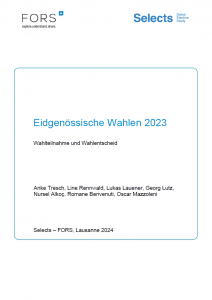
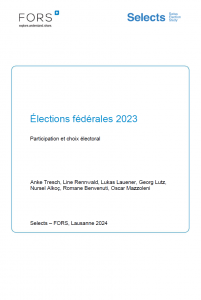
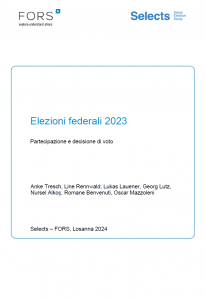
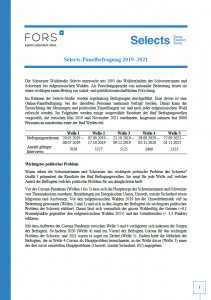
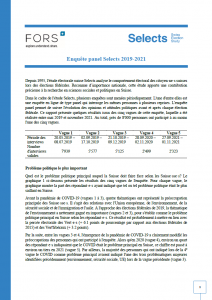
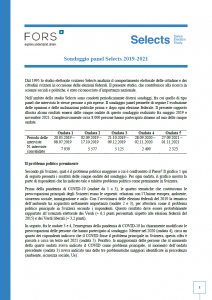
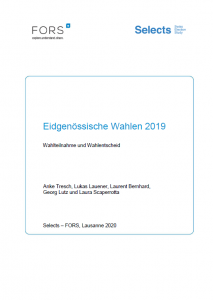
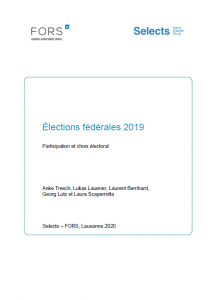
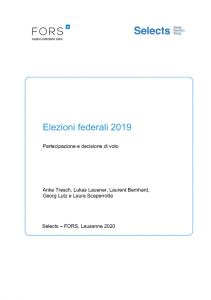
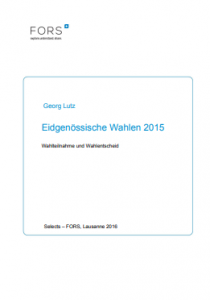
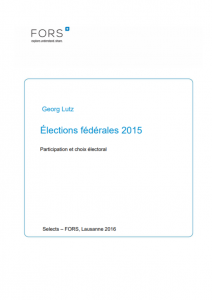
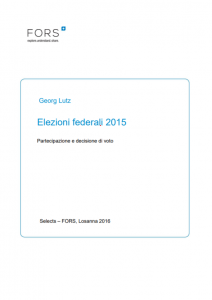
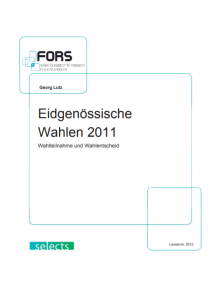
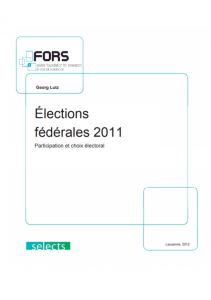
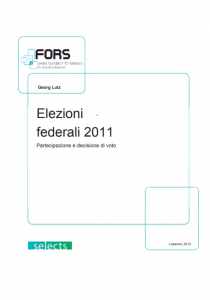
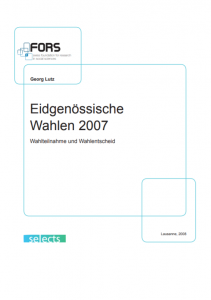
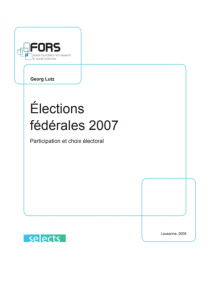
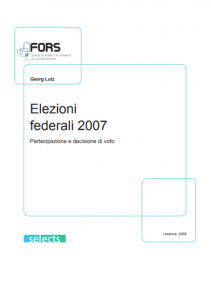
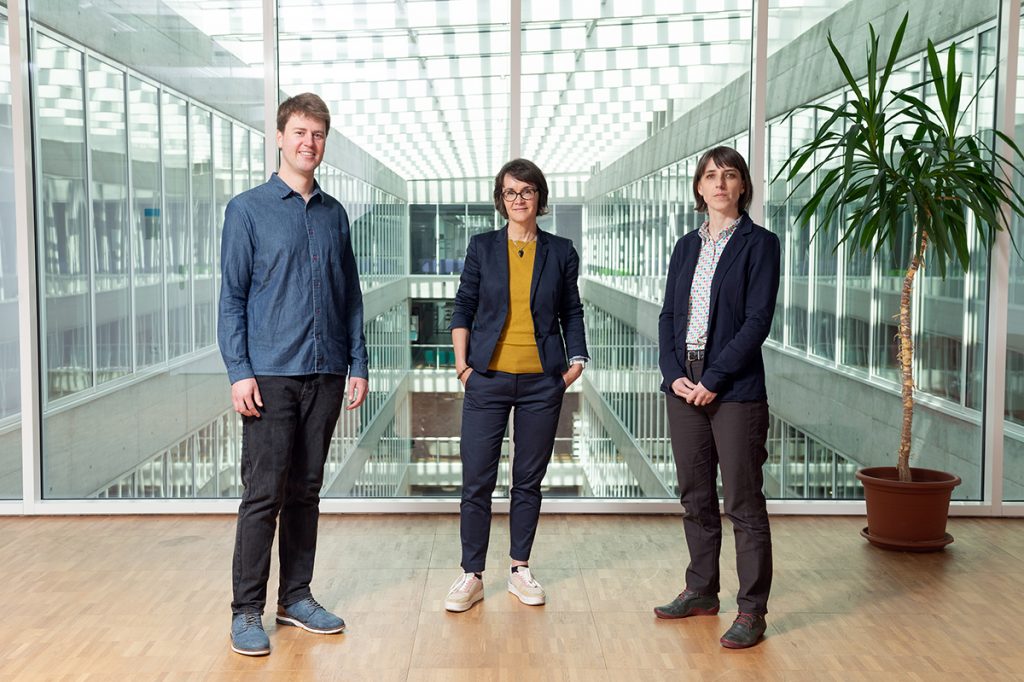
 Bâtiment Géopolis,
Bâtiment Géopolis, +41 (0)21 692 37 30
+41 (0)21 692 37 30

